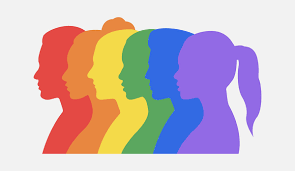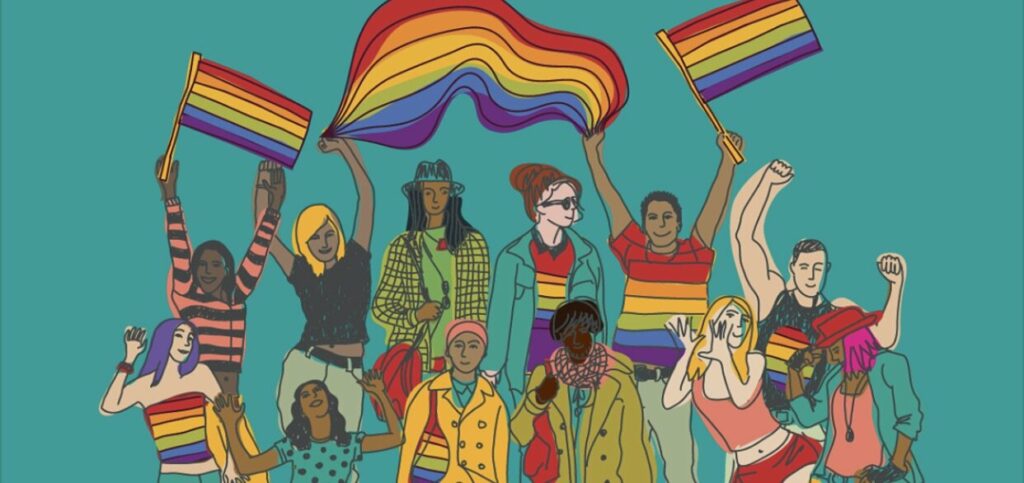BLGBTQ youth counseling is a form of therapy that aims to support and help young people who identify as lesbian, gay, bisexual, transgender, or questioning (LGBTQ) navigate the challenges they face. These challenges may include discrimination, harassment, rejection, and isolation, which can lead to mental health issues such as anxiety, depression, and suicidal ideation. LGBTQ youth counseling provides a safe and supportive environment for young people to explore their feelings, identities, and experiences with a trained professional who understands their unique challenges.
Contents
Understanding LGBTQ Youth

LGBTQ youth are a diverse group of individuals who may identify as gay, lesbian, bisexual, transgender, non-binary, genderqueer, or any other gender identity or sexual orientation. According to a report by the Trevor Project, a national organization that provides crisis intervention and suicide prevention services to LGBTQ youth, over 1.8 million young people in the United States identify as LGBTQ. These young people face a range of challenges, including discrimination, harassment, violence, and rejection from family members and peers. This can have a significant impact on their mental health and well-being.
Different Approached To LGBTQ Youth Counseling

Cognitive-behavioral therapy (CBT)
CBT is a type of therapy that focuses on identifying negative thought patterns and behaviors and developing strategies to change them. Furthermore, This approach can be helpful for LGBTQ youth who may struggle with negative self-talk or internalized stigma related to their identities. CBT can help young people develop coping skills to manage anxiety or depression, improve their self-esteem, and develop a more positive outlook on their future.
Acceptance and commitment therapy (ACT)
ACT is a type of therapy that helps individuals develop acceptance and mindfulness skills to better cope with difficult emotions and experiences. Furthermore, This approach can be helpful for LGBTQ youth who may struggle with self-acceptance or feel isolated or misunderstood by others. ACT can help young people develop a sense of self-compassion and self-worth, learn to live in the present moment, and identify their values and goals for the future.
Family Therapy
Family therapy involves working with the family to improve communication and relationships and promote acceptance and support for the young person’s identity. Furthermore, This approach can be helpful for LGBTQ youth who may face rejection or misunderstanding from their family members. Family therapy can help young people and their families work through conflicts, improve communication, and build stronger relationships.
Group Therapy
Group therapy involves working with a group of LGBTQ youth who share similar experiences and challenges, providing a supportive community and a safe space to share and learn from each other. This approach can be helpful for LGBTQ youth who may feel isolated or disconnected from others in their daily lives. Group therapy can help young people develop social skills, build a sense of community, and learn from the experiences of others.
Narrative Therapy
Narrative therapy involves exploring the stories and narratives that young people create about themselves and their experiences. Furthermore, This approach can be helpful for LGBTQ youth who may have internalized negative stories or messages about their identities or experiences. Narrative therapy can help young people reframe their experiences in a more positive or empowering light, develop a stronger sense of self, and build resilience.
Psychodynamic Therapy
Psychodynamic therapy involves exploring the unconscious motivations and conflicts that may be underlying a young person’s thoughts, feelings, and behaviors. This approach can be helpful for LGBTQ youth who may have experienced trauma or other difficult experiences related to their gender identity or sexual orientation. Psychodynamic therapy can help young people understand the root causes of their difficulties, develop insight and self-awareness, and work through unresolved conflicts.
Benefits of LGBTQ Youth Counseling

- Support and Validation: LGBTQ youth counseling provides a safe and supportive space where young people can explore their identities, feelings, and experiences without fear of judgment or discrimination. This can be particularly important for young people who may face rejection or stigma from their families, peers, or communities. Counselors who are knowledgeable about LGBTQ issues can provide validation and support for young people, helping them feel more understood and accepted.
- Coping Strategies: LGBTQ youth may face a range of challenges related to their gender identity or sexual orientation, including discrimination, harassment, and social isolation. Furthermore, Counseling can provide young people with tools and strategies to cope with these challenges, such as developing healthy communication skills, managing anxiety and depression, and building a support network of peers and adults who understand their experiences.
- Improved Mental Health: LGBTQ youth are at a higher risk for mental health issues such as depression, anxiety, and suicidal ideation. Furthermore, Counseling can help young people improve their mental health and well-being by providing a safe and supportive environment where they can explore and address their emotional and psychological needs. Counselors can also provide referrals to other mental health professionals or resources if needed.
- Self-acceptance: LGBTQ youth may struggle with self-acceptance and internalized stigma related to their identities. Counseling can help young people develop a more positive self-image, improve their self-esteem, and cultivate a greater sense of self-acceptance and self-worth. This can be particularly important for young people who are still exploring their gender identity or sexual orientation.
- Improved Relationships: LGBTQ youth may experience challenges in their relationships with family members, peers, or romantic partners. Furthermore, Counseling can help young people improve their communication skills, build stronger relationships, and develop healthier boundaries in their relationships. Family therapy can also be particularly helpful for young people who are facing rejection or misunderstanding from their families.
- Empowerment: LGBTQ youth counseling can help young people develop a greater sense of empowerment and agency over their lives. Counselors can work with young people to identify their strengths and build on them, develop a sense of purpose and direction, and cultivate a greater sense of resilience in the face of challenges.
Challenges of LGBTQ Youth Counseling
- Stigma and Discrimination: LGBTQ youth may hesitate to seek counseling due to fears of discrimination or stigma from their families, peers, or communities. Counselors who are not knowledgeable about LGBTQ issues may also unintentionally stigmatize or discriminate against young people, which can further contribute to feelings of isolation and distrust.
- Confidentiality Concerns: LGBTQ youth may be hesitant to disclose their identities or experiences for fear of breaches of confidentiality. This can be particularly challenging if the young person is not out to their family or friends, or if they receive counseling in a setting where confidentiality is not guaranteed.
- Lack of Awareness and Training: Some counselors may lack awareness or training in LGBTQ issues, which can impact their ability to provide effective support. Furthermore, Counselors need to seek out training and resources to better understand the unique challenges that LGBTQ youth face and to develop strategies to provide effective support.
- Cultural Considerations: LGBTQ youth from diverse cultural backgrounds may face unique challenges related to their identities and experiences, which should be taken into account in counseling. Furthermore, Counselors who are not familiar with the cultural context of the young person may unintentionally overlook important cultural considerations or make assumptions about the young person’s experiences.
- Access to Care: LGBTQ youth may face barriers to accessing mental health care, such as lack of transportation, financial barriers, or lack of access to LGBTQ-affirming providers. This can make it difficult for young people to receive the support they need, particularly if they live in areas with limited resources or where LGBTQ individuals face stigma and discrimination.
Finding a Counselor For LGBTQ Youth Counseling

- Research Counselors: Start by researching counselors who specialize in LGBTQ issues or have experience working with LGBTQ youth. You can check with your local LGBTQ center or advocacy organization for a list of counselors who are LGBTQ-affirming.
- Consider Referrals: Ask for referrals from other LGBTQ youth, friends, family members, or healthcare providers who may have experience working with counselors who are knowledgeable and supportive of LGBTQ youth.
- Check Credentials: Make sure the counselor you choose is licensed and has the appropriate credentials to provide counseling services. Furthermore, You can check with your state licensing board or professional counseling organization to verify a counselor’s credentials.
- Assess Experience: Look for a counselor who has experience working with LGBTQ youth and has knowledge of the unique challenges they may face. Furthermore, You may want to ask potential counselors about their experience and approach to counseling LGBTQ youth.
- Consider Cultural Competence: If you or your child come from a particular cultural background, you may want to look for a counselor who has experience working with individuals from that cultural background and is culturally competent.
- Schedule a Consultation: Furthermore, Schedule a consultation with potential counselors to discuss your needs and goals for counseling and to assess whether the counselor is a good fit. During the consultation, you can ask questions about their approach to counseling, their experience working with LGBTQ youth, and how they will ensure confidentiality.
- Trust Your Gut: Ultimately, you want to choose a counselor who you and your child feel comfortable with and trust. It’s important to choose a counselor who is supportive, compassionate, and understanding of the unique challenges that LGBTQ youth face.
Conclusion
LGBTQ youth counseling is an important form of support for young people who face a range of challenges related to their gender identity or sexual orientation. By providing a safe and supportive environment, counselors can help young people develop coping strategies, improve their mental health and well-being, and build a support network of peers and adults who understand their experiences.
For more information, please contact MantraCare. The LGBTQ community encompasses individuals who identify as lesbian, gay, bisexual, transgender, and queer. If you have any queries regarding Online LGBTQ Counseling experienced therapists at MantraCare can help: Book a trial LGBTQ therapy session


